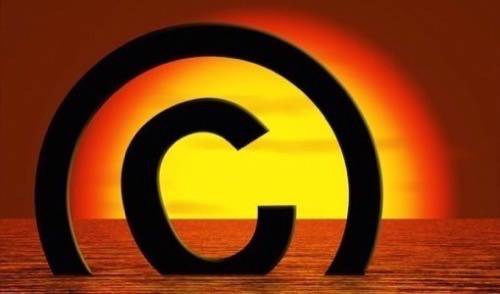
U.S. cable and media companies are still revving up the so-called “six-strikes” Copyright Alert system – even after a prototype model of the system is closing down in France.
The Copyright Alert system, also known as the “six strikes” warning system, is designed to create a mechanism where Internet Service Providers will inform subscribers that someone with their IP address appears to be downloading copyrighted material, such as music and movies. After six such notices, subscribers could face sanctions – such as throttling of their Internet connections.
The new system was supposed to start in 2011 and then again in August of 2012, but has been delayed by reported deployment issues.
Formed as part of an agreement with five major U.S. Internet providers (AT&T, Cablevision, Comcast, Time Warner Cable and Verizon), the Motion Picture Association of America (MPAA) and the Recording Industry Association of America (RIAA), the six-strikes system would enable third-party monitoring companies (so-called “media defenders”) to report illegal downloading to the ISP of the offender.
At that point, according to Don Bowman of Sandvine, ISPs will “notify their subscribers who have been identified as downloading infringing content on behalf of the media defender, but not to provide the identity of the subscriber to the media defender or attempt to determine what content is potentially being infringed.”
The idea is that once subscribers receive one or two of these notifications, which will presumably escalate in tone, they will take action and cease the illegal downloading.
Well, that’s the idea.
Not-So-Gay Paris
In France this summer, Minister of Culture Aurélie Filippetti condemned a similar system called Hadopi as being ineffective, particularly in light of how much it cost.
“In financial terms, [spending] €12 million and 60 agents – that’s expensive to send a million e-mails,” Filippetti told Le Nouvel Observateur in July.
Besides being expensive, Hadopi’s ultimate punishment (which comes after three strikes, not six), exclusion from the Internet for anywhere from three months to one year, was looked upon by French and other European lawmakers as too harsh. Even third-strike Hadopi offenders never had the trigger pulled on this final punishment.
In the U.S., the Center For Copyright Information, the coalition that will be responsible for managing the Copyright Alert system, has been very careful to emphasize the educational rather than the punitive aspects of the new system. Executive Director Jill Lesser took great pains to make this point in a recent op-ed on CNN.
“Our work at CCI is about educating consumers about how to legally and ethically enjoy the movies and music they love,” Lesser wrote.
Is There a Point?
My ReadWriteWeb colleague John Paul Titlow has already explained very well why the new Copyright Alert system is toothless. Habitual offenders of copyright violations will hardly care about the new system, when it is put in place.
So why bother? After all, even the CCI acknowledges that even though ISPs will not be identifying offenders it notifies, copyright holders and their media defender proxies will still be working to identify copyright offenders the way they used to, by formally requesting the identity of Internet subscribers so legal action can be pursued.
There are a couple of reasons why the Copyright Alert system is likely to still move forward, barring an unexpected snafu.
- Chase Off the Amateurs. This is the big bet that the MPAA and the RIAA are making: scare off the small-time abusers who could comprise most of the violations. A missed episode of TV here, a movie there… the kind of every-so-often casual infringement that keeps the demand for downloaded media high and steady. Reduce the traffic enough, and then maybe the illicit download sites will start to fade from lack of traffic. P2P traffic on BitTorrent, though, should only benefit from fewer leeches downloading files and not seeding them back, but casual Internet users probably aren’t using BitTorrent anyway.
- Reconnect the Cord. Remember, the six-strikes system is supposed to be about education. Not only will it try to educate subscribers why downloading content is naughty, but notices will also make a concerted effort to steer them towards legitimate media sources. And what better source than the ISP’s own cable television service? Every one of the participants in the Copyright Alert system has a companion television offering, and this could be the selling point to get the ISPs on board. By offering the appropriate cable service to downloaders trying to get content that’s available on cable TV, there is a chance that cable providers could see a little more revenue coming their way.
This is a small side benefit for the ISPs, but they’re likley to look kindly on any opportunity to reduce cord-cutting.
For the average user, the new alert system will not seriously affect their Internet habits. If you are predisposed to downloading illegal content, then you’ll still find a way. But as long as the RIAA and MPAA remain committed to stopping piracy through any means necessary, PR-based campaigns like this will continue to be a weapon in their anti-piracy arsenals.
Image courtesy of Shutterstock

















